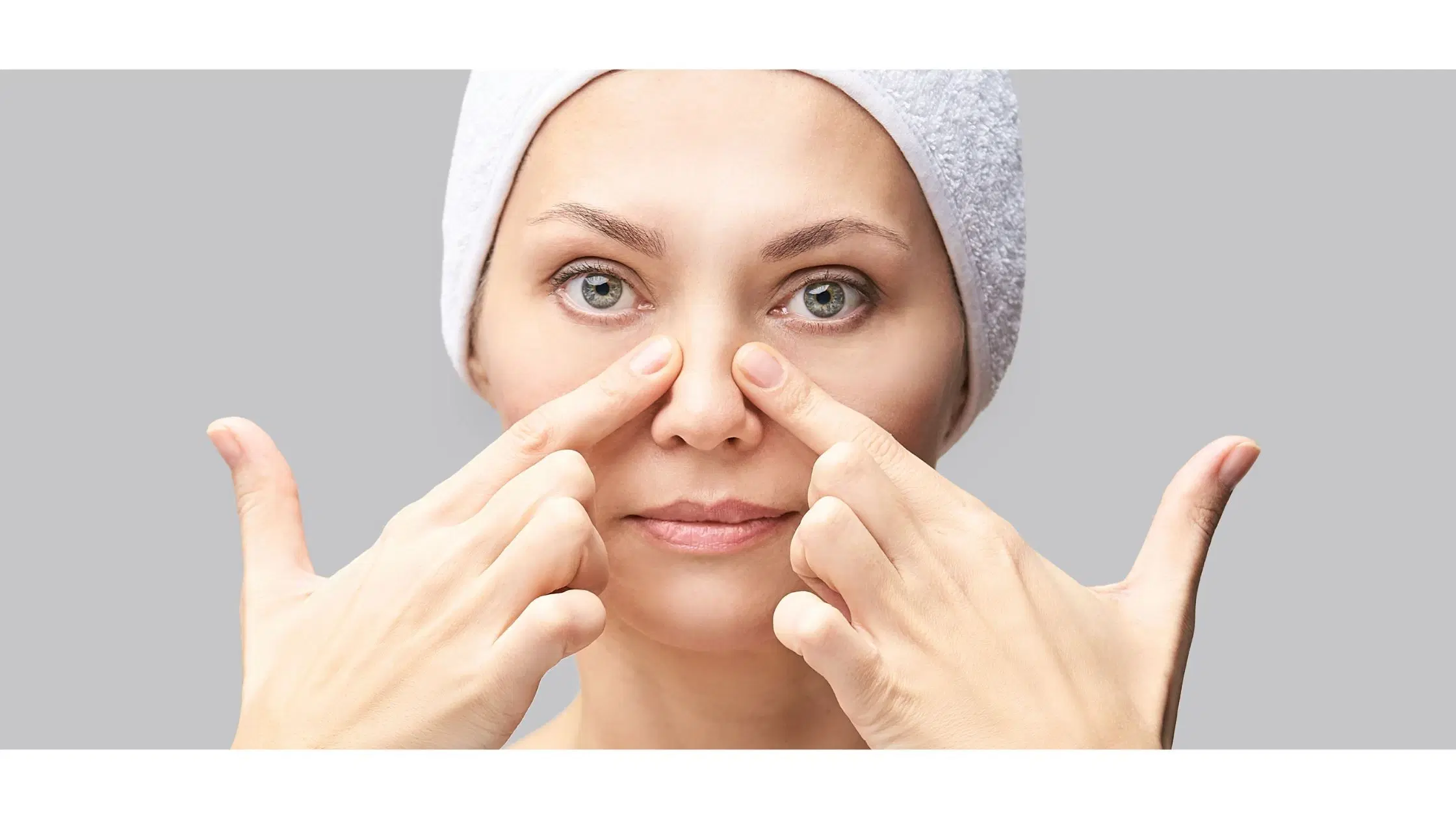
Beauty & Skincare
•04 min read
-9872eb55-9af0-4022-8644-bd8f05e8333e.png&w=3840&q=75)
Sensitive skin breakouts can be daunting, causing discomfort and frustration when they appear unexpectedly. In this guide, we explore natural solutions to soothe these breakouts while addressing the root causes of inflammation and irritation. By understanding your skin and incorporating gentle practices, you can create a calming skincare routine that helps prevent future flare-ups.
Your skin may break out when it reacts to environmental and internal triggers. Common factors include irritation from products that contain harsh chemicals and synthetic fragrances. Environmental stressors such as pollution and UV rays can also lead to a compromised skin barrier, making it more prone to inflammation and red spots. Additionally, hormonal changes can further complicate the situation, especially for those managing acne-prone sensitive skin.
Other reasons for sudden breakouts may be linked to changes in your daily routine or diet. When you use products that are not non-comedogenic or specifically designed for sensitive skin, they may clog pores and trigger unwanted reactions. Understanding these triggers is the first step to finding the right remedy for your skin irritation remedies.
Choosing skincare products with natural, soothing ingredients is key to managing sensitive skin breakouts. When selecting products, consider those infused with ingredients known for their calming abilities. Aloe vera is popular for its anti-inflammatory and hydrating properties, while chamomile extract works wonders to reduce redness and irritation. Colloidal oatmeal offers relief from itchy and inflamed skin, and green tea extract is celebrated for its antioxidant powers that help soothe irritation and battle oxidative stress.
You can also take matters into your own hands with simple yet effective DIY recipes. For instance, blend raw honey with colloidal oatmeal to create a mask that hydrates and calms your skin simultaneously. Another option is using a cucumber compress; the cool, soothing slices can naturally alleviate redness and puffiness. Pure aloe vera gel applied directly to the skin is another natural solution for sensitive skin breakouts, reducing irritation swiftly and effectively.
A well-planned skincare routine can transform your skin's health. Start your day with a fragrance-free, hydrating cleanser that gently removes impurities without stripping your skin's natural moisture. Follow this with a lightweight, non-comedogenic moisturizer designed especially for sensitive skin. Ending your morning routine with a mineral-based sunscreen containing zinc oxide or titanium dioxide is important to shield your skin from UV damage while preventing further irritation.
-5ba1f1f6-995b-4617-a1ff-43890351cff7.png&w=3840&q=75)
Evenings offer a chance to repair and rejuvenate. Use a double cleanse method: begin with a gentle oil cleanser that removes makeup and impurities, then switch to a hydrating cleanser. After cleansing, apply a treatment serum enriched with ingredients like niacinamide or hyaluronic acid to restore hydration and balance. Finish your routine with a richer moisturizer to lock in moisture and support overnight skin renewal. You can also incorporate a soothing cream for breakouts that calms and repairs the skin barrier.
To keep your skin in optimal condition, consider adding weekly treatments into your regimen. A mild exfoliant, such as one containing lactic acid, can help remove dead skin cells without causing additional irritation. Additionally, using a calming mask with ingredients like chamomile or oatmeal can provide extra relief and maintain a healthy skin balance. Consistency is key in achieving lasting redness relief for sensitive skin.
Expert Tip: Hydration Is Key
Maintaining hydration is essential for a healthy skin barrier. Use a hydrating moisturizer after cleansing to lock in moisture and keep your skin calm throughout the day.
When shopping for skincare, read labels carefully. Opt for fragrance-free skincare that avoids synthetic additives known to inflame sensitive skin. It’s best to choose non-comedogenic skincare products to prevent clogged pores, a common issue in acne-prone sensitive skin. Hydrating products for sensitive skin should contain key ingredients like hyaluronic acid and ceramides to boost moisture levels and maintain a soothing balance. Look also for soothing creams for breakouts that include natural calming agents.
Steer clear of products with alcohol-based ingredients, as these can dry out your skin and cause further sensitivity. Harsh exfoliants such as walnut scrubs or formulations with high concentrations of acids may strip the skin’s natural barrier, triggering irritation and inflammation. Additionally, synthetic dyes and fragrances should be avoided to prevent any unnecessary irritation or reaction.
Your skin's health is often a reflection of your overall well-being. Incorporate anti-inflammatory foods like fatty fish, leafy greens, and berries into your diet. These foods help keep inflammation at bay while supporting natural skin repair. At the same time, cutting back on processed foods and sugars can further reduce the risk of flare-ups and support a calming skincare routine.

Stress is an often overlooked trigger for sensitive skin breakouts. Engaging in mindfulness practices such as yoga or meditation can help lower stress levels and, in turn, reduce your skin's reactivity. Coupled with a hydrating regimen and proper skincare practices, these stress management techniques can play a significant role in improving your skin's overall health.
Drinking ample water throughout the day not only aids overall health but also supports your skin's natural barrier function. Adequate hydration helps maintain the skin’s suppleness and resilience while combating irritation. By scheduling regular hydrating reminders along with your skincare routine, you can ensure your skin stays calm and balanced.
Sensitive skin can overreact to even mild irritants due to a compromised barrier, leading to redness and breakouts.
Stick to gentle, fragrance-free products with soothing ingredients like aloe vera and chamomile.
Repair your skin barrier by using hydrating products with ceramides and hyaluronic acid and avoid harsh chemicals.
Sudden breakouts may result from environmental changes, stress, or the use of unsuitable skincare products.
Your journey to handling sensitive skin breakouts naturally starts with understanding your skin and its triggers. Embracing natural remedies and a soothing, structured skincare routine can help restore balance and reduce irritation. Remember that choosing fragrance-free, non-comedogenic products with hydrating ingredients is key to maintaining a calm and radiant complexion. With thoughtful care and consistency, even the most delicate skin can enjoy a soothing and resilient future.